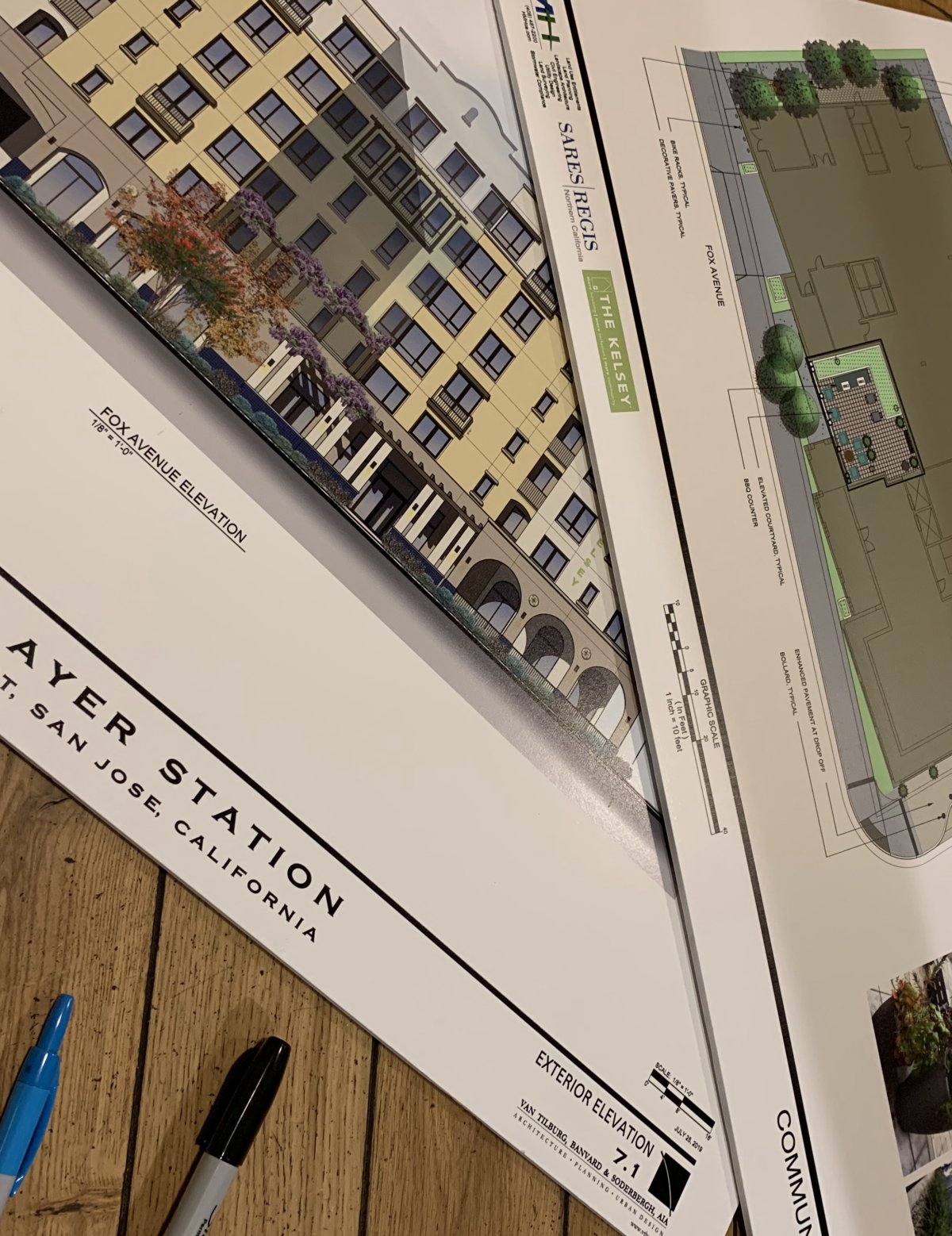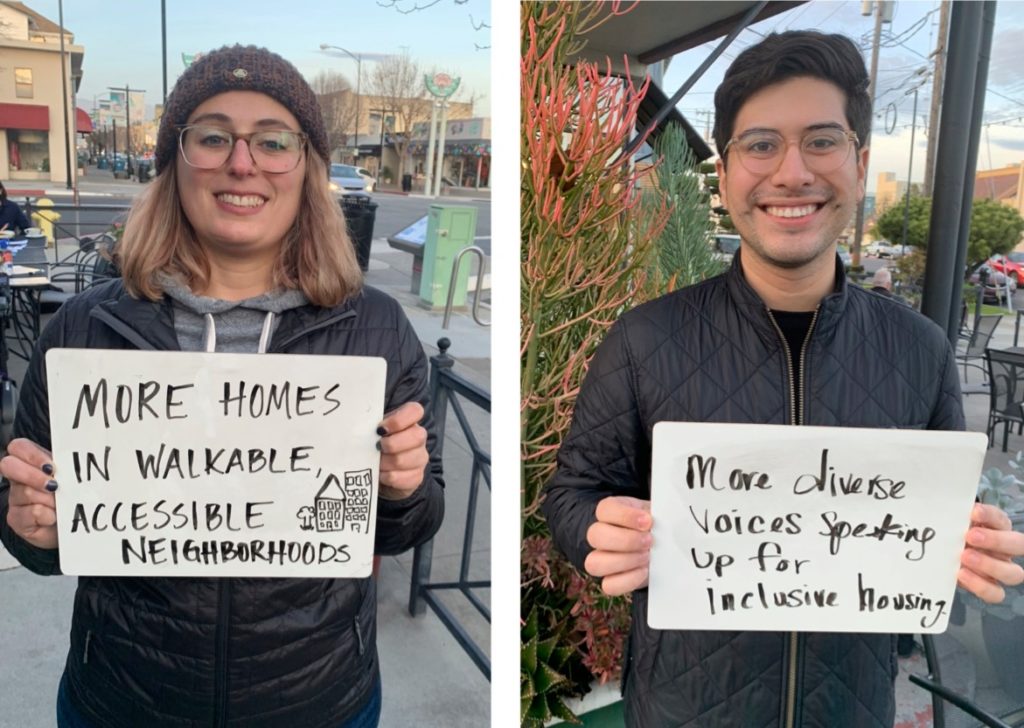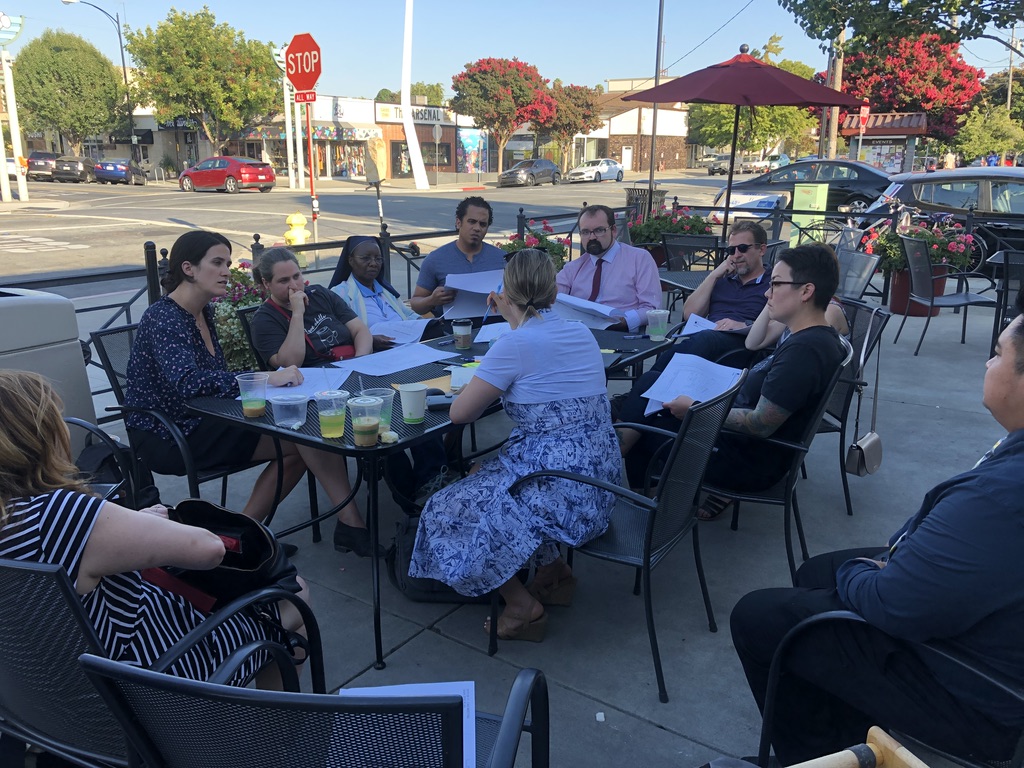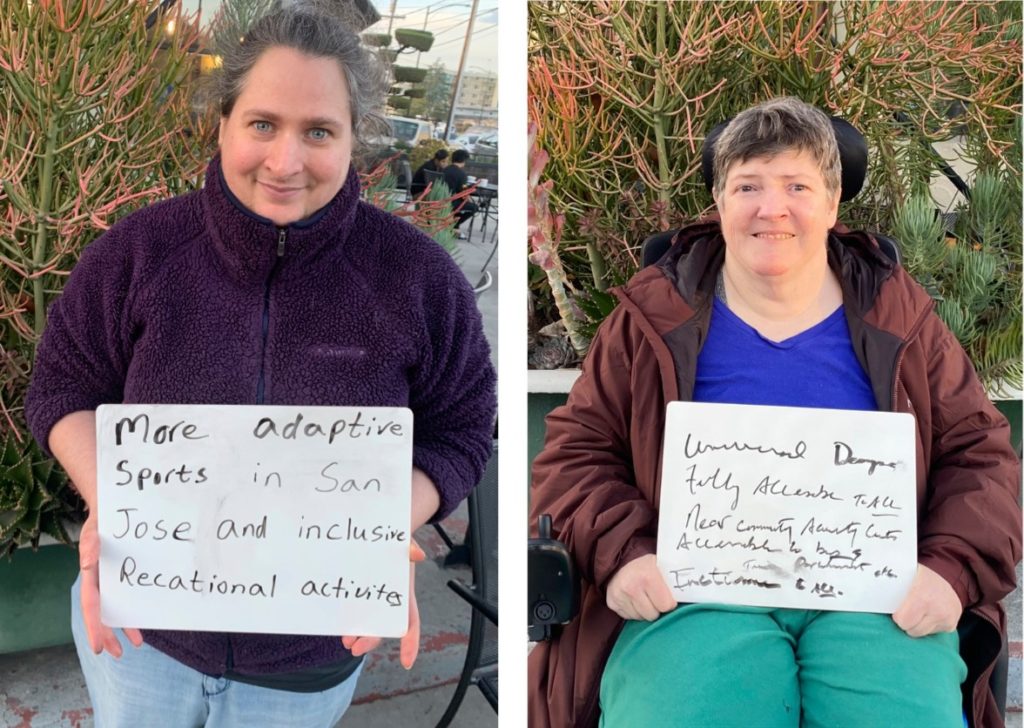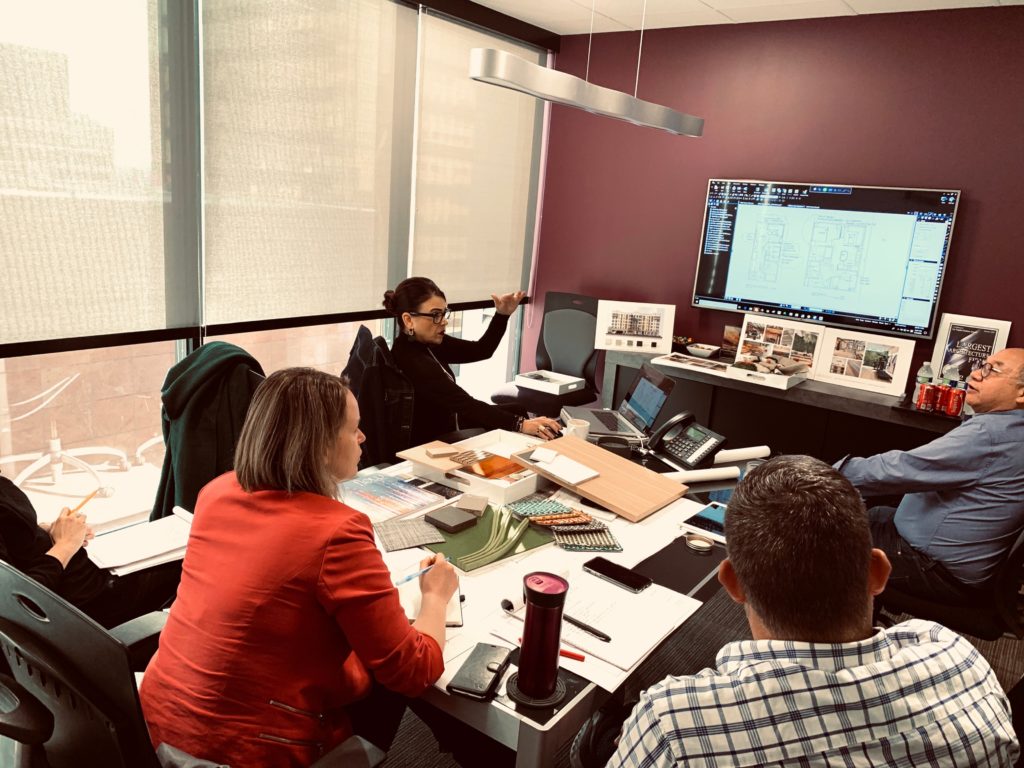Over the past 14 months The Kelsey has had the pleasure of learning about the rich cultural heritage, the key community concerns, and the people that make the Vendome, North First Street, and Japantown neighborhoods vibrant. Community meetings, individual coffees, small gatherings in neighborhood homes, and walking tours have helped inform our design, our approach to property management and transit, and our resident services plan.
While up to this point we’ve gone the traditional path, we have made the decision to complete our approval process under Senate Bill 35 (SB35) which allows for ministerial approval of our entitlements. This is a process decision to enable our project to get over the finish line in a timely, cost-effective way. The 14 months that we have spent conducting community outreach, environmental studies, and engaging people traditionally left out of the community planning process have been well spent. However, as we look to the ultimate goal of this project and the mission of The Kelsey–to provide high-quality, much-needed housing to people of all incomes including those with disabilities — this process change will ensure our resources can go farther to provide MORE. Each month of delay carries significant costs for our project and only makes much needed housing further off. Submitting the identical project under SB35 will allow us to receive our approval for our current development more quickly.
While SB35 does not require developers to do neighborhood outreach, additional studies, or respond to specific requests from neighbors and community members, we have invested significant time and resources in doing all three. We plan to be a continued partner in the community to make this project one that not only meets a critical housing need but contributes to the spirit and quality of the surrounding neighborhoods.
If you would like to hear about the process directly from the City of San Jose, you can reach out to the assigned planner from the Planning Department, Stefanie Farmer.
Remind me the basics of the project…
The Kelsey Ayer Station, LLC (“The Kelsey”) is proposing innovative redevelopment of an under-utilized site located at 447 North First Street in San Jose, CA. The Kelsey’s mission is to create thriving, inclusive housing where individuals of all abilities and backgrounds live, play, and serve communities together and to partner with organizations and entities who seek to do the same. Sares Regis Group of Northern California (“SRGNC”) is functioning as a “Development Manager” for the Applicant.
The new development will include 115 mixed-income and mixed-ability rental apartment homes, which have been uniquely designed to foster an inclusive, supportive community. We will provide homes across all income levels: 20 units reserved for people making at most 20% of area median income (AMI), 60 units reserved for people making at most 60% of AMI, 33 units reserved for people making at most 80% of AMI, and 26 units offered at market rate. Across all income levels, there are 28 homes reserved for people who have developmental disabilities and receive services from the San Andreas Regional Center. There will be two additional units reserved for our Inclusion Concierge staff who help residents of all abilities navigate their neighborhood, engage with their city, and connect to programs and activities.
How does this change the design of the project?
It doesn’t. We’ll still be sticking to the 5 stories of housing over a ground floor podium. We’ll still provide 18 parking spots and very specific transit management strategies. We will continue with our Spanish Mission style design, to be most in line with the character of the community. While SB35 would allow us to make the project taller or reduce parking, we have made the decision to keep the project the same as what has been presented to and discussed in the community.
What is Senate Bill 35 (SB35)?
Effective January 1, 2018, this bill creates a streamlined approval process for home-builders who are building affordable housing in communities that have under built the amount of housing obligated by state law. California Department of Housing & Community Development (HCD) requires San Jose to build 35,000 units of housing across all income categories, but only 14,680 permits have been issued by the City of San Jose in this reporting period.
What does “Ministerial Approval” mean?
Ministerial approval means the project no longer needs to go to a Planning Director’s Hearing – the planner who has been assigned to this development (and has reviewed the plans extensively over the last seven months) can approve the project directly. Ministerial approval also means that California Environmental Quality Act (“CEQA”) does not apply to our approval process; however an outside consultant did look at all CEQA relevant areas to determine there would be no significant impact of our project.
How do projects qualify for SB35?
Approval under SB35 is possible because we are providing over 50% affordable housing to households making less than 80% of area median income (AMI). 50% affordable housing is the lowest threshold for using SB35 to accelerate the approval process, but we are proudly building over 75% of our project as affordable housing. By a legal agreement with the City of San Jose, these are restricted units for 55 years.
What about the concerns neighbors raised in community meetings?
We have integrated the following changes in our final submitted plan as a direct response to community input:
- Lobby Design – Open to the community (and community meetings!) with soft seating and a “home” like atmosphere
- Sensory Garden – On the East Side of our building separating the building and its neighbor on Fox street will be a garden designed with a calming, peaceful aesthetic
- Drop Off Along North First Street – Mitigates traffic on North First Street by providing a safe loading and unloading zone for paratransit vehicles and ride share
- Parking Strategies – Unbundled parking, priority consideration for tenants who do not own vehicles, on-site concierge which will provide information to residents regarding alternative transportation options
Beyond what is formally submitted in the plans, we will pursue these additional parking mitigation strategies to the greatest extent possible:
- Off-site parking for staff – We have an MOU to provide extra parking for our resident’s support staff
- Marketing – The building will be specifically marketed towards a car free/ sustainable/downtown lifestyle. Residents will have to disclose in their lease if they own a car. If they do they’ll need to show a proof of paid parking they have secured outside of The Kelsey
- Transit passes – All residents will receive free transit passes and we’ll be working with VTA to increase ridership, function, and service to the neighborhood
Also, we would like to note that although we are eligible for SB35 from the outset, we strived to be the best neighbors we could while fulfilling our mission of inclusive, affordable housing for people with and without disabilities. The maximum height we could build is 120 feet, whereas we are only building to 75 feet. We are not seeking any additional density or other concessions that we would be eligible for under the State Density Bonus Law.
How does this affect the funding provided from the City of San Jose?
It makes the city subsidies that we have received to go farther. As awarded in Spring 2019, we are receiving $125K per affordable housing unit that we build in the form of a long-term loan from the City of San Jose. This public subsidy offsets 22% of the total cost to build an affordable unit of housing in our region where construction costs are among the highest in the world. We estimate that every month of delay of our project, our costs rise by $173K due to escalating construction costs and carrying costs related to the property (insurance, taxes, and financing). In short, each month of delay costs more than the subsidy that the City of San Jose contributes to one unit of housing. We have chosen to not risk delay and the financial feasibility of this project by completing our approval process using SB35.
How can I get involved with or live at The Kelsey Ayer Station?
We welcome participation in our Community Advisory Group, Inclusion Hours, or other volunteer and support opportunities as the project continues forward. Email hello@thekelsey.org for more information. If you want to be added to a list to be notified of leasing at the property, likely not to begin until 2022, sign up here.
